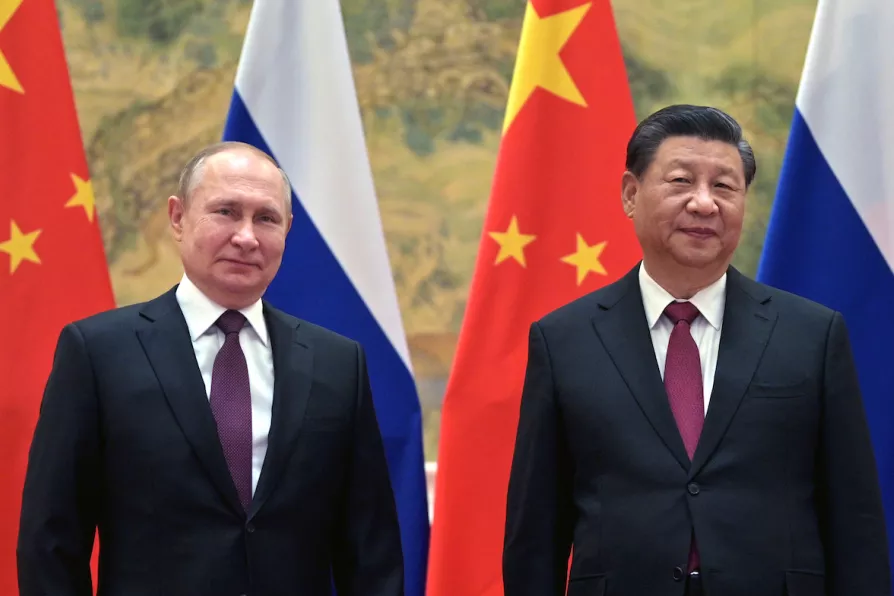As tens of thousands return to the streets for the first national Palestine march of 2026, this movement refuses to be sidelined or silenced, says PETER LEARY

 Chinese President Xi Jinping, right, and Russian President Vladimir Putin pose for a photo prior to their talks in Beijing, China, Feb. 4, 2022.
Chinese President Xi Jinping, right, and Russian President Vladimir Putin pose for a photo prior to their talks in Beijing, China, Feb. 4, 2022.
THE first anniversary of Russia’s invasion of Ukraine brought two significant proposals: one, a further UN general assembly resolution drafted by Ukraine in consultation with allies; the other, China’s 12-point peace plan.
Both call for a ceasefire, and both call for compliance with the UN sovereignty principle; beyond that the overlap is limited.
The UN resolution demands the immediate withdrawal of Russian troops but falls short of specifically calling for peace talks. A non-binding resolution, it was passed by 141, with 32 abstaining and seven against. As with previous UN votes on Ukraine, the large developing countries abstained — India, China, Pakistan, Bangladesh, and Iran were joined by Cuba and most of the Central Asian states, with nearly half of the African states not giving their backing.

Washington plays innocent bystander while pouring weapons and intelligence into Ukraine, just as it enables the Gaza genocide — but every US escalation leaves Ukraine weaker than the neutrality deal rejected in 2022, argue MEDEA BENJAMIN and NICOLAS JS DAVIES

JENNY CLEGG reports from a Chinese peace conference bringing together defence ministers, US think tanks and global South leaders, where speakers warned that the erosion of multilateralism risks regional hotspots exploding into wider war












